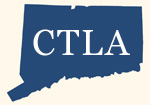
We will do our part to make sure that you get the best legal representation possible.

CT Trial Lawyers Association


State of CT Judicial Branch
|
Bankruptcy Tips
The thought of filing for bankruptcy may be a little disconcerting at first. Facing up to financial obligations often causes people to feel anxious and unsure of their decisions and this can lead to further mistakes that only compound a debt problem. Dealing with creditors, loan officers and mortgage brokers can be nerve-wracking, especially when they are all asking for their money. If you find yourself in a situation where a debt is beyond your means to pay off in a timely manner with minimal interest, a Chapter 7 or Chapter 13 bankruptcy may be your best option.
Here are some tips for getting started on a bankruptcy filing:
Ch. 7 or Ch. 13 – The first thing you need to decide is if you will be filing a chapter 7 or chapter 13 bankruptcy and to find out if you qualify for either. In brief, a chapter 7 personal bankruptcy involves the liquidation of assets to pay creditors where a chapter 13 filing involves setting up an agreed upon payment plan that lets you pay off your debt over a specified period of time. Not just everyone can file and you need t review the requirements of each filing to ensure you qualify.
What can't be erased – Many people are under the impression that if they file for bankruptcy all of their debts will be resolved. In reality, there are many payments that you won't be able to hide from including federal and state taxes, child support payments, student loans and criminal fines. If you are unsure about what is dischargeable or non-dischargeable, consult with an experienced bankruptcy attorney.
Establish a new bank account – When a bankruptcy officially begins it is very likely that your assets, including bank accounts, will be frozen. This means your Official Receiver will have access to these accounts and will determine how the funds should be allocated, obviously giving first thought to the creditors. If you want to have an account that is free from the bankruptcy restrictions apply for a basic checking account with a new bank. There may be some background checks and forms to fill out since you are in the process of a bankruptcy but having a separate account will help you with direct debits.
Back to Main
|
*Free Initial Consultation*
Evening & Weekend Appointments Available



New Haven County
Bar Association

|
















